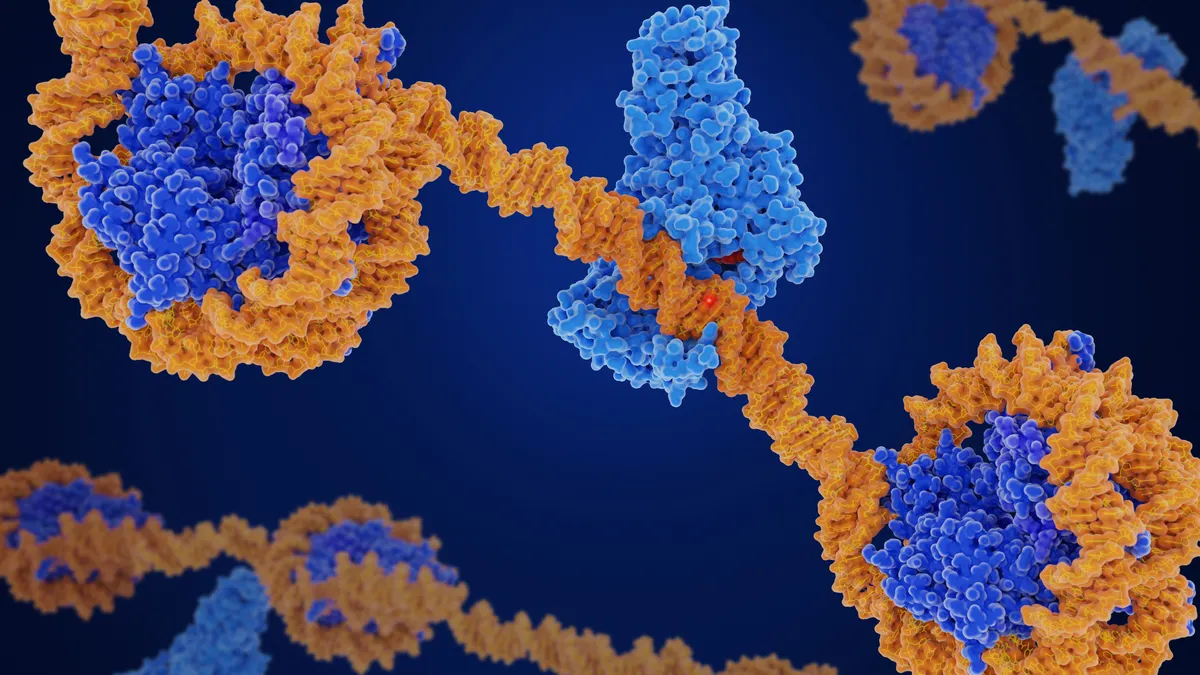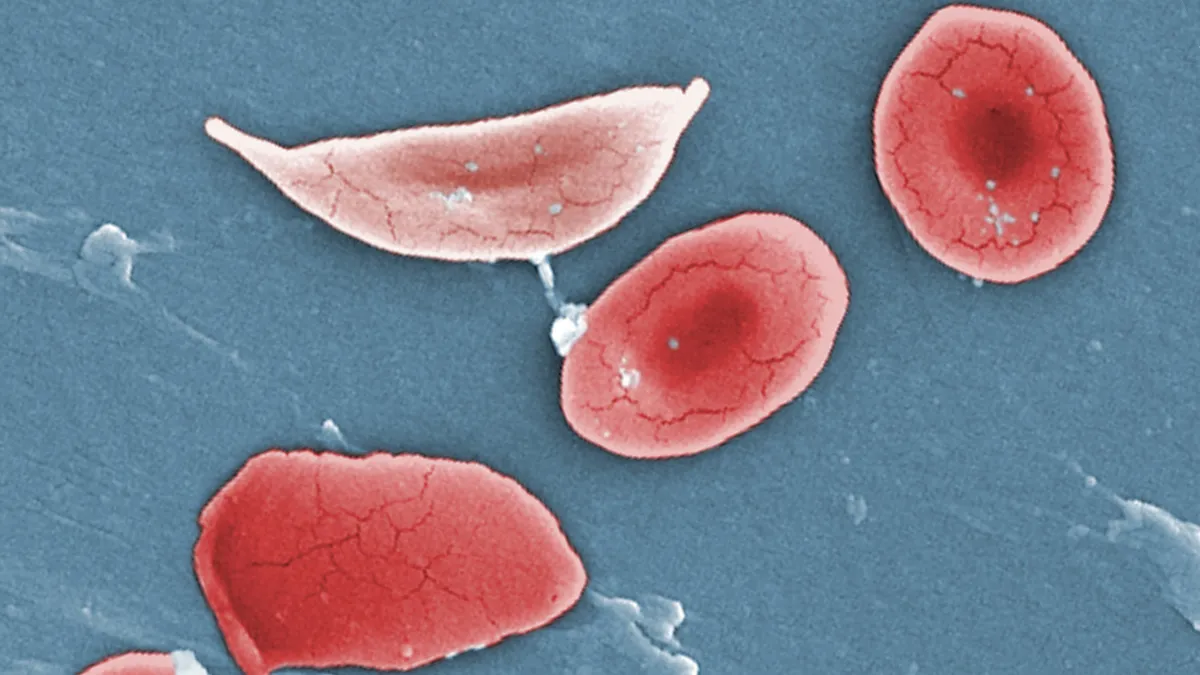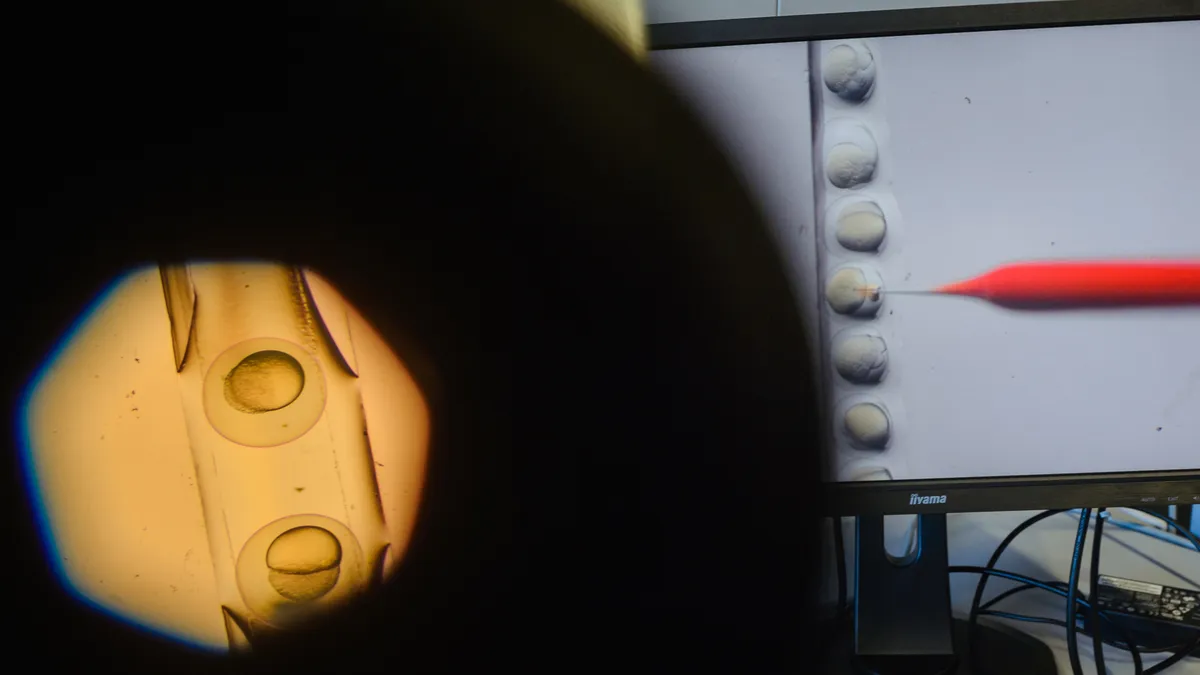The Food and Drug Administration on Wednesday officially put two late-stage trials of a gene-editing treatment from Intellia Therapeutics on hold, adding more complexity to a voluntary halt the company initiated only days ago.
On Monday, Intellia said it stopped dosing and enrolling patients in a pair of Phase 3 trials of nexiguran ziclumeran, or nex-z, a CRISPR therapy it’s developing for the rare disease transthyretin amyloidosis. The move was spurred by a “grade 4” adverse event — a spike in liver enzymes and bilirubin levels so concerning a study participant was hospitalized — and Intellia said it intended to work with regulators and independent experts to develop new safety protocols.
On a conference call Monday, CEO John Leonard declined to speculate how long the self-induced pause might drag on, only noting that it’d be “certainly some weeks” before dosing would continue.
The clinical hold from the FDA, revealed in a regulatory filing Wednesday, could further complicate the company’s plans, however. The agency will provide Intellia with a formal letter within 30 days. Afterwards, Intellia will have to formally respond to that letter and requests for additional information before the studies can restart.
That process represents a “a higher level of scrutiny than a sponsor electing to recommence a study on its own accord after a voluntary pause,” wrote William Blair analyst Myles Minter, in a research note.
The FDA’s hold isn’t unexpected given Intellia’s decision to pause testing earlier this week, wrote Leerink Partners’ Mani Foroohar. But it “further dims” investor sentiment surrounding Intellia and likely delays a study readout by “several quarters,” he added.
Intellia is developing nex-z for two forms of transthyretin amyloidosis, which can cause misfolded clumps of protein build up and cause organ damage. The company has billed the therapy as a potential long-lasting alternative to injectable and oral therapies for the condition.
Prior to the stoppage, Intellia had already enrolled more than 650 people with the “cardiomyopathy” form of transthyretin amyloidosis in one trial and 47 people with the “polyneuropathy” form in the other. It had also previously disclosed another “grade 4” adverse event in clinical testing, but that incident didn’t lead to a patient hospitalization.
Intellia said it intends to work with the FDA to address the clinical hold “as expeditiously as possible.” Company shares fell 5% in early trading Thursday and have lost more than half their value this week.




































